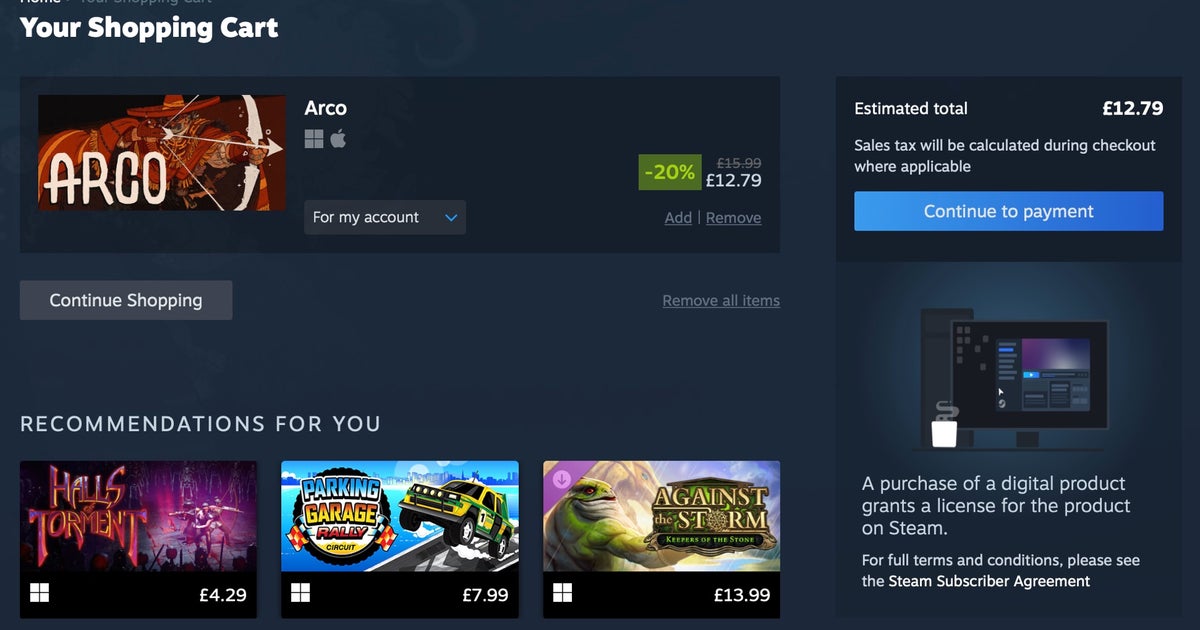GOG for the win (sometimes)!
It is exactly the same there.
Not true, you get a DRM free installer, which is arguably better than physical media for a console as it can be duplicated indefinitely without hinderance.
You are physically able to duplicate it, legally it is quite different though.
Even in the most draconian countries, you can legally make backups of software you buy using unofficial methods so long as you don’t redistribute them.
Even if it wasn’t that would be completely fucking unenforceable and I can’t imagine being enough of a bootlicker to care.
The point is that we should be trying to change the laws that enable this, not simp for companies trying to pretend they can circumvent it legally when all they do is enable what the publisher will see as piracy.
Rattling.
Why? This has literally always been the case, but now they’re going into it actively telling you that this is the case. Seems like a step in the right direction to me.
Rattling intensives
(its a joke, i make a Spooky joke. Its literally a thing that was always written in the TOS of steam and every other store. Technically you don’t even own disk games as, when the key server is shut down they are looked forever, and there is no legal way to get around that.
Because we know of course that the TOS is read by absolutely everyone every time, and not just blindly accepted 99.99% of the time because the consumer has no option. Companies can do whatever they want as long as its on the TOS no one reads. We can’t have any sort of oversight or regulation of things companies do if it’s disclosed in the TOS.
hyper rattling
(I’ve read it… Its not even that long, oh and there are regulations about what is legal in there)
Don’t worry, I got the joke Mr. Boner Man.
The point is every company hides simple facts like this in the TOS that no one reads. You know you are one of the handful of people that have bothered reading more than 5 words of it.
We regularly see the average person surprised when companies shutdown or change structures and their digital “purchases” become no longer accessible because they only own a license to something that will no longer exist and there are little to no protections for digital purchases being revoked because most laws are archaic and based on a physical product, even referencing digital items but not taking the nature of that into account.
Remember just a couple years ago when Sony was shutting down a PlayStation Store movie service and those movies were removed from customer libraries? This wasn’t a subscription service with changing library like Netflix, but specific movie purchases advertised as if it would be the same purchase as getting a physical product but digital, and from a large corporation that no one would reasonably expect to suddenly shutdown.
Where i live there are laws about what can be written in the tos, what cant and what is irrelevant to the tos (invalid statements).
However everyone with more than a wallnut brain knows that you don’t own the game physically and that you basically get a license to download it with your account, steam isn’t responsible for the game itself (servers being shut down) you can in 99,99% of cases still download the game from steam even without key servers or the servers necessary for the games online mode, steam distributes from their own servers.
However everyone with more than a wallnut brain knows
And yet we regularly see that is exactly what the average person is. That’s what the laws have to be based around, not those that are educated about a subject.
The average person doesn’t understand licensing as a concept. They buy a movie on DVD, they buy a movie on Amazon streaming. It’s the same term and the same thing to them, but with vastly different restrictions. One you don’t even own the product at all. If Amazon decides to shut the service down, you’re Shit out of Luck. Even though you paid to buy the movie just like if you got it on a disc.
Our laws differentiate that difference in ownership because the corporations want that to be specifically mentioned to protect their interests, but they usually don’t require storefronts to tell consumers that the purchase button doesn’t mean you own the product you’re paying for. You just are able to use it as long as the company wants to let you, with little to no recourse if they change their mind for any reason.
You’re defending this fucked up system whether you intend to or not. You are basically blaming the consumer for not knowing that paying for something one way means they own it, and paying for it a different way means they don’t and it can be taken away at any time.
there is no legal way to get around that.
That’s debatable.
Breaking encryption is illegal in most countries, although nobody is actually abel to do something about it… Maybe Nintendo finds a way…
Afaik, if there’s not a legitimate way to purchase the game it becomes a grey area in the US. I’d be shocked if the EU didn’t have a similar exception, but idk.
Technically yes, but only under very specific circumstances and from what i know you can’t distribute or get a tool for it from the internet, as the distributor goes into a very dark gray area.
And its also not giving you the right to run your own server if necessary, its also not allowed to crack hardware for it.
It should be legal, it should also be legal to crack any no longer supported software and set up servers for it, but currently it isn’t.
Technically you don’t even own disk games as, when the key server is shut down they are looked forever, and there is no legal way to get around that.
Depends on the tech they use - back in the day CD Keys just had to pass an algorithm check - nowadays some companies have a remote call to some registration server or rely on platform auth - but the easiest to implement is that old algorithm based approach that just checks it locally.
The algorithm “encrypted” disks have master keys you can find online usually, they are however hardly encrypted.
It has always been the case yet I’ve seen this urban legend that Valve has some kind of contingency plan that keeps your ownership in case they close down.
It has only ever been word of mouth. A non-binding promise by steam made years ago. It has credence because valve has generally been seen as a rare reputable tech company.
Also I’m pretty sure they took that out of the TOS a while ago.
I’m only allowed to read this article if I agree to send 625 companies my metadata. Irony.
Are you in the EU? Every ad company does a dark pattern where it looks like it’s impossible to opt out but remember that you can’t be legally opted in without explicitly agreeing to it. Once you know it you’ll notice that if you go into managing your choices then no non-essential cookies or data sharing partners will be selected. Ad company wants to trick you into agreeing by making „agree” look like it’s preselected and default (by being the only coloured button) but nothing there is actually selected and if you click „save choices” you just refused those cookies.
Alternatively you can use an extension like superagent.
I’m in Germany. It should be illegal, but the companies get away with it. Even shitty newspapers like Bild are doing it. I use ublock with annoyances on and ghosterly but these still get through.
I’m not even sure this is legal since accepting and rejecting should be equivalent choices. In those cases agreeing requires one click while rejecting requires two (manage->save, on top of said dark pattern). Then again many regulators are either toothless or willingly blind. EU is obviously not as bad as other places but still has ways to go.
Well i guess if i return my license i get back my money right?
Well I guess it meets the letter of the law :/
They can choose between either affirmative acknowledgment:
(A) The seller receives at the time of each transaction an affirmative acknowledgment from the purchaser indicating all of the following:
(i) That the purchaser is receiving a license to access the digital good.
(ii) A complete list of restrictions and conditions of the license.
(iii) That access to the digital good may be unilaterally revoked by the seller if they no longer hold a right to the digital good, if applicable.
Or a notice:
(B) The seller provides to the consumer before executing each transaction a clear and conspicuous statement that does both of the following:
(i) States in plain language that “buying” or “purchasing” the digital good is a license.
(ii) Includes a hyperlink, QR code, or similar method to access the terms and conditions that provide full details on the license.
https://leginfo.legislature.ca.gov/faces/billTextClient.xhtml?bill_id=202320240AB2426#99INT
Without a requirement to declare any restrictions (e.g. non-transferability) or revocable nature of the license the notice option is pretty toothless.






